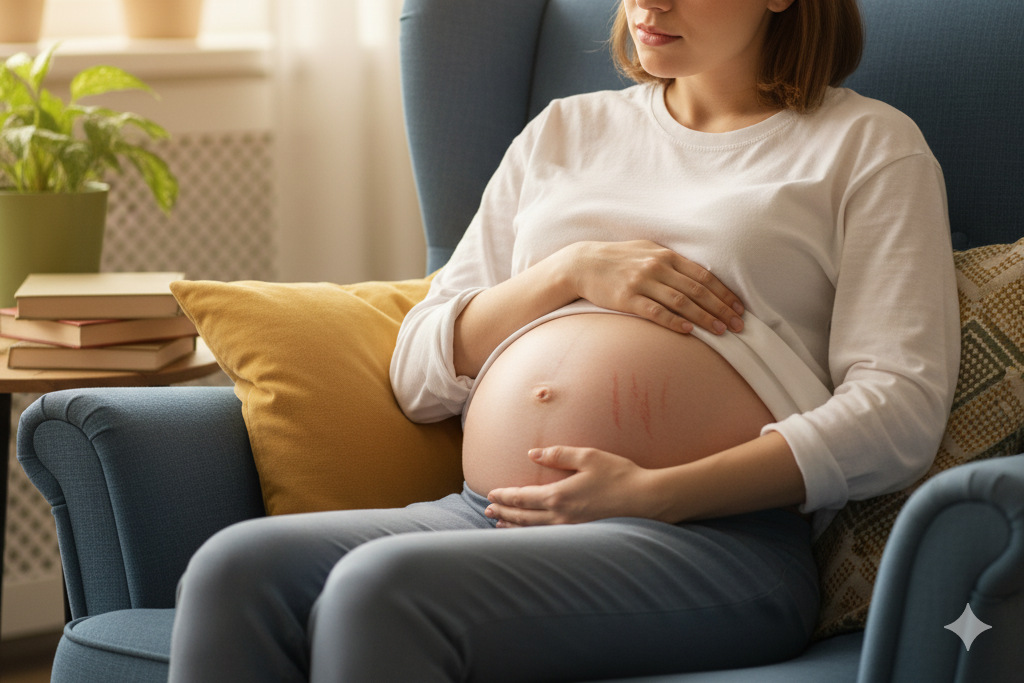The Challenge: A Deeper Look
Introduction
Pregnancy is a beautiful journey, but it also comes with some unexpected symptoms—one of the most common being pregnancy itchiness. If you’ve noticed your skin feeling unusually itchy, you’re not alone. Many women experience this during pregnancy, and in most cases, it’s completely normal and harmless. Still, it’s natural to wonder what’s causing it and whether you should be concerned.
Let’s take a closer look at why pregnancy itchiness happens, when to seek help, and what you can do to soothe your skin.
What is Pregnancy Itchiness?
Pregnancy itchiness refers to the irritating, sometimes persistent sensation of itchy skin that develops during pregnancy. It can appear on your belly, breasts, arms, legs, or even all over your body. For most women, the itching is mild and linked to normal physical changes in pregnancy. However, in rare cases, it may signal an underlying condition that needs medical attention.
Your Path Forward: Practical Solutions
Why Am I So Itchy? Common Causes
Pregnancy itchiness often happens for very normal reasons:
- Hormonal changes and increased blood flow: During pregnancy, your body produces extra hormones and increases blood circulation to support your baby. These changes can make your skin more sensitive, leading to itchiness.
- Skin stretching and dryness: As your belly and breasts expand, your skin stretches rapidly. This stretching, combined with dryness, is one of the biggest culprits behind itchiness.
- Dry air or harsh products: Using strong soaps, hot showers, or being in a dry environment can strip your skin’s natural oils, making itchiness worse.
- Cholestasis of pregnancy (ICP) (less common but important): In rare cases, itchiness may be a sign of intrahepatic cholestasis of pregnancy (ICP), a liver condition that can occur in the second or third trimester. ICP often causes intense itching, especially on the hands and feet, and usually without a rash. If you experience this, it’s important to call your doctor.
Is Itchiness Normal During Pregnancy?
Yes—pregnancy itchiness is very common. For most women, it’s simply the result of stretched, dry, or sensitive skin. Mild to moderate itchiness is considered a normal part of pregnancy and not harmful to you or your baby.
When to Worry: Signs It Could Be Something More
While itchiness is usually harmless, sometimes it may point to a medical issue. Contact your healthcare provider if you notice:
- Severe or persistent itching that keeps you up at night.
- Itchiness without a rash, especially on your palms or soles.
- Yellowing of the skin or eyes (jaundice).
- Dark urine or pale stools.
These symptoms may indicate cholestasis of pregnancy (ICP), which requires monitoring and treatment to ensure your baby’s safety.
The Reward: Embracing the Benefits
Tips for Soothing Pregnancy Itchiness
If your itchiness is mild, these simple remedies can help you find relief:
- Moisturize daily with fragrance-free, pregnancy-safe creams or oils.
- Take lukewarm baths instead of hot showers to avoid drying your skin.
- Wear loose, breathable clothing made of cotton to prevent irritation.
- Stay hydrated to support healthy skin from within.
- Avoid harsh soaps and detergents that strip natural oils.
- Cool compresses can calm irritated areas when itching flares up.
Most Important FAQs
Why is my belly so itchy during pregnancy? +
Is it safe to use anti-itch creams during pregnancy? +
What is cholestasis of pregnancy and why is it serious? +
Conclusion
Pregnancy itchiness is very common and, in most cases, a normal part of your body’s changes as it prepares to welcome your baby. While it can be uncomfortable, simple lifestyle adjustments and skin care can provide much-needed relief. If your itchiness is severe, persistent, or unusual, don’t hesitate to check in with your healthcare provider for reassurance and proper care.
Remember, you’re not alone—many women experience this, and with the right support, you can manage it comfortably.
Disclaimer: This article is for informational purposes only and should not replace medical advice. Always consult your healthcare provider if you have concerns about your symptoms during pregnancy.
